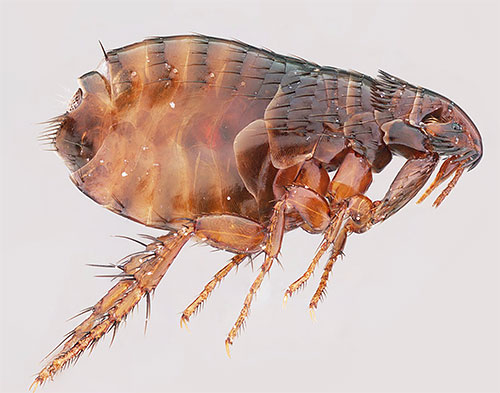
Many recklessly believe that fleas live only on animals, such as cats and dogs, and without them they quickly die, having no food source. Practice also shows that the average person has a very vague idea of how long fleas live: here the general idea of parasites is such that they live for a very long time. After all, it would seem that they constantly swarm in the fur of animals, while nowhere in the apartment and on the pet itself can not be found dead fleas.
In reality, there are no centenarians among fleas, and these insects live for a very short time, and environmental conditions have a very significant effect on the lifetime of the parasite.
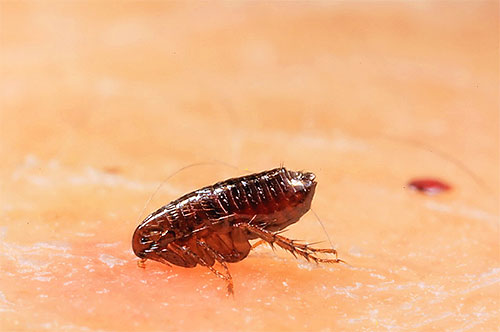
About the life span of fleas in different conditions, about exactly where adult parasites and their larvae live in an apartment, and also how long they can live without food - we will talk about this later and in more detail.
Flea life span
The average lifespan of an adult flea is 2-3 months. During this time, the insect usually manages to make about 60-100 bites on its prey, and the female lays 400 to 500 eggs.
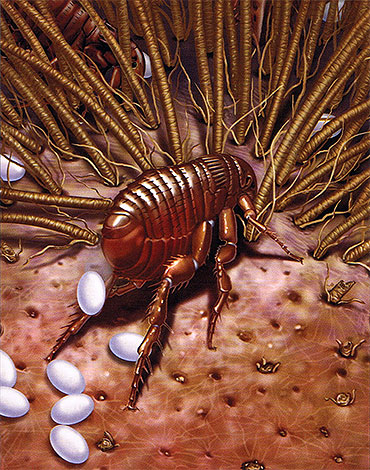
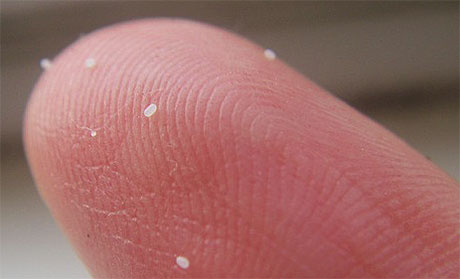
All these figures are typical for the ideal conditions for the existence of the parasite, while it is understood that the flea dies a natural death. For different types of fleas, such optimal living conditions are quite specific combinations of temperature and air humidity. So, for example, rat fleas live for about 2 months at a temperature of 14-15°C and a humidity of about 60%, and chicken fleas live for the same period at 40°C and a relative humidity of about 80%.
Approximately the same amount of fleas live in an apartment, provided that they are not fought with special preparations here and that insects have constant access to food.
With an increase in the average temperature in the habitat, the life span of fleas is reduced. At the maximum temperatures for each species (for cat and dog fleas that are common in apartments, this is 36-37 ° C), insects live only about three to four weeks. At the same time, the development of their eggs and larvae proceeds much faster, and in general, the life cycle of fleas and their reproduction cycle is greatly reduced.
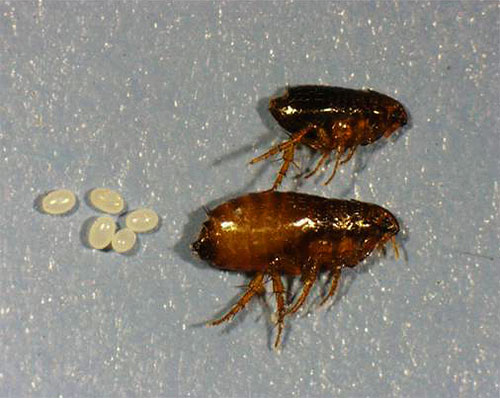
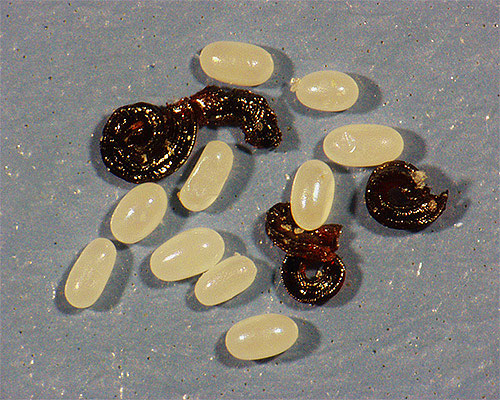
On the contrary, at low temperatures, the life span of a flea is extended, and at the lower limit of its species temperature range, parasites can live up to one and a half to two years.
It is interesting
At high temperatures, fleas grow larger than the average member of the species. On the contrary, as the temperature decreases, they become smaller.
The breeding cycle of fleas also depends on temperature. Their larvae develop for about a month at optimal temperatures, a little more than a week at high temperatures, and up to 8 months at extremely low temperatures.
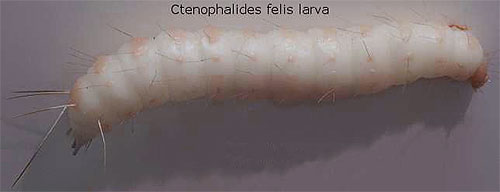
For about two more weeks, eggs develop, about three weeks the insect is at the pupal stage.
In general, the “from egg to egg” flea breeding cycle takes from 10 days to 1 year.And the lifespan of one flea from egg to death can stretch from one and a half months to several years.
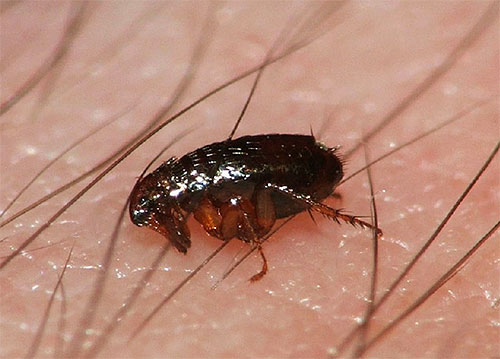
As a rule, in nature, fleas do not live long even in comfortable conditions - they are constantly destroyed by the owners themselves, biting them out of the wool. In addition, fleas die from their own infections and parasites.
It is interesting
At the pupal stage, fleas can survive very harsh conditions - frosts, icing, severe droughts and the action of insecticides. Theoretically, flea chrysalis can survive for several years.
Due to this specific life cycle, the flea is able to survive very adverse environmental conditions, and sometimes even many of its hosts. So, for example, if the animal on which the fleas fed dies, the insects leave its corpse almost instantly (fleas cannot feed on blood on a fallen animal).
Long-lived fleas, or when parasites break records
In general, of all fleas, large species live the longest, parasitizing mainly on ungulates.
For about a year, the so-called “variegated worm” lives on sheep - the Tien Shan flea, reaching a length of 7 mm. Some fleas that parasitize northern animals can go into prolonged stupor in the winter season and live in general for more than 14-16 months. At low temperatures for these species, their life expectancy can be several years.

But about the life span of fleas on humans and animals, it should be said separately - in view of established stereotypes, many incorrectly believe that parasites live on their hosts all the time.
How long do fleas live on humans and animals: debunking established myths
Scientists are well aware that fleas do not live on humans. They also do not live permanently on other mammals, including domestic animals (although it seems to many that the main habitat of parasites is the hair of cats and dogs). Fleas generally cannot live on their hosts all the time - they need to breed in calm and safe places, and the human and animal body is not suitable for this.
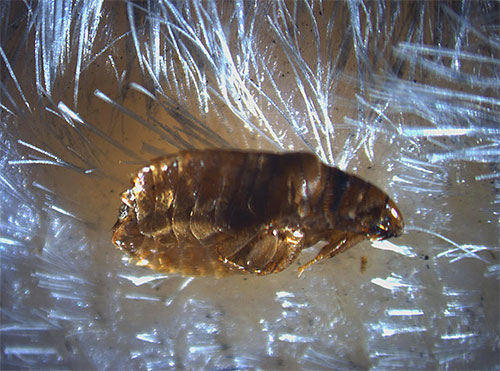
On humans, as well as on cats and dogs, fleas jump in only to get enough blood. The entire feeding process, consisting of several bites, can last from a minute to several hours, and after saturation, the flea jumps off the animal. However, due to the large number of parasites, it usually seems that there are a lot of them on the animal and they, in fact, live here.
So, given that fleas do not live on animals and humans, they should be looked for in other places in the apartment. Usually they hide in the bedding on which the animal rests, in carpets and behind them, behind baseboards, in floor crevices, in heaps of garbage in the corners, among old rubbish. Here their worm-like larvae usually develop.
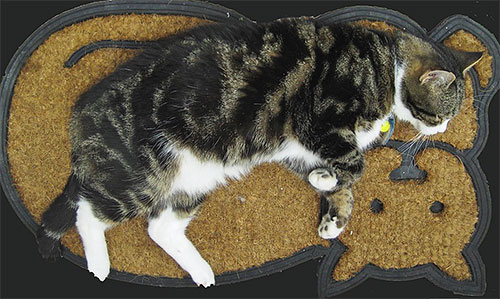
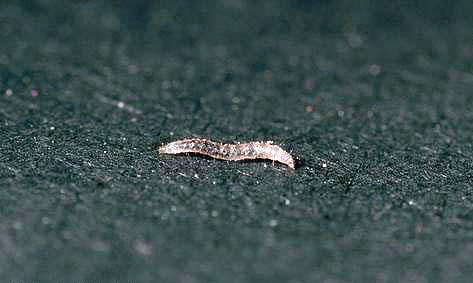
Fleas rarely live in clothes, although if they are wound up in an apartment, then they can be found in the closet. The main requirement for the place in which they are located is a short and quick access to food (animal or human).
Although fleas live long enough without food.
Hostless parasites: how long can fleas live without food?
Like many other blood-sucking insects, fleas can starve for a long time. Cat and human fleas, which most often attack humans, can go without food for several months, while maintaining mobility and not falling into suspended animation.
However, no matter how long a flea lives without food, parasites cannot reproduce without constant reinforcement. The female flea needs to drink blood in order to lay eggs.
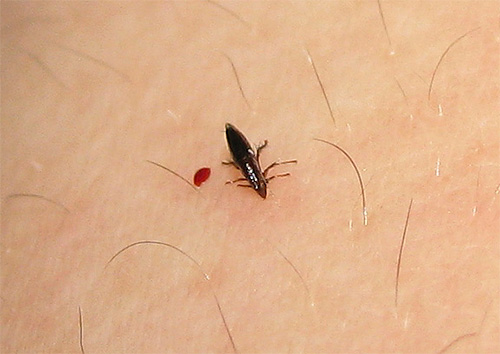
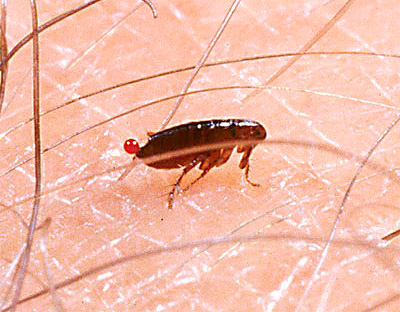
Thus, without an animal or a person, fleas, although they are able to live long enough, they will not be able to reproduce.
On a note
In practice, this means that if people and animals leave the apartment for several weeks or even months, fleas will calmly wait for them and bite them immediately after returning. You should not expect that while the owners of the apartment will rest on vacation, the parasites will die of hunger. And the fleas that live in summer cottages and in private houses calmly parasitize on rats and mice living here, and therefore, even in the absence of a person, they do not starve for most of the year.
What determines the lifespan of fleas?
In addition to low temperatures, other factors can affect the life expectancy of fleas:
- Air humidity - at low but tolerable humidity, fleas live a little longer, although the influence of this factor is not as significant as the influence of temperature.
- The presence of food. Fleas can starve for a very long time, while their life expectancy during a hunger strike also increases.
- The constancy of the physical parameters of the environment. In the case of regular temperature fluctuations, parasites can periodically fall into a stupor, and in general their life span increases.
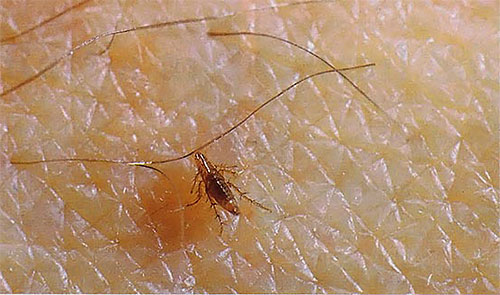
It is always worth remembering that fleas are typical parasites, the success of their reproduction is determined not so much by the speed and timing as by the number of descendants of each individual flea. So, during its relatively short life, each flea may well become a great-great-grandmother for hundreds and thousands of descendants, and it is not worth counting on this process to slow down in a particular apartment for some reason.Therefore, when breeding fleas, their total persecution should be carried out, destroying both adult insects and larvae.
Only in this case, parasites can be removed quickly and completely.
An example of how fleas from the basement inhabited all the apartments of a high-rise building

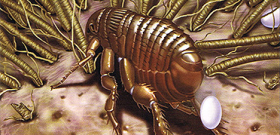
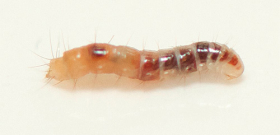
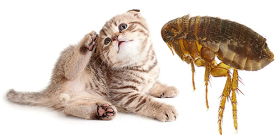
At the dacha, I vacuumed the floor ... Then I didn’t show up there for a long time, and after 1 year and 9 months I came to the dacha and cleaned the vacuum cleaner. So these creatures made themselves cocoons of dust and lived there. When he crushed the cocoon with his fingers, the flea jumped-jumped))
Do they write nonsense in the article? How can a flea live 2-3 months without food if it only lives 2-3 months?
You read and read an article that a flea lives for several years, and in the end you wrote 2-3 months. Although the article says that this is a myth.
I don’t care how long she lives, how to get rid of them?
That's it, all my legs were bitten, I can't sleep peacefully.There is no cat at home, and you go into the basement - they climb on you. And today, in general, I slept for three hours a night, I was completely bitten, I thought I would be left without blood. And it itches, there are no words to explain it.
They cannot stand wormwood, you can break and spread the branches on the floor of the house.
It is a myth. They take it out great. He covered all the floors of the apartment with wormwood, rubbed his legs with the juice of wormwood stems - and what? The fleas both jumped freely and jumped, and the legs bite right through the bitterness of the juice dried on the legs.
Lies. Wormwood doesn't help.
They are displayed in an elementary way. Tested in my apartment. We took a cat flea collar (we took a piece that was superfluous, that is, it was longer than the one we put on the cat’s neck), cut this piece into 5-6 smaller pieces with scissors and scattered it on the carpet where there were fleas. A day later, "no one lived there and bit their feet." Then they threw these pieces to another part, and then they just lay on the floor, on carpets. Helped great.
Is it really that simple? )) I can't even believe it.
Fleas got
I hate fleas
From the basement, the fleas moved into the apartment. Cooper's fluid helped. And inexpensive, by the way.
Shoe them all and listen to where she ran ...
In our house then we will go deaf from the clatter! These creatures are everywhere, and the whole body itches in the evening and at night, hellish torture. It seems to me that fleas were invented by the Nazis!
Try an antiallergic to relieve itching. Helped me.
We went to the vet, they gave us a pill and dripped drops between the shoulder blades, this is enough for 12 weeks.I thought that it would not help, but no - already at night they (fleas) died and fell out. I removed the bed in the morning and then also found dead ones. It helped very well, you only need one more time for a second appointment - and that's it, the fleas are gone.
Can you tell me what pills you used?
What kind of pill is this? And how to use it?
I understood about cats, but about dogs - is it possible to use collar pieces too?
I don't think there is any way to get them out. We started with dichlorvos, then I bought an ampoule at a pharmacy, diluted it, poisoned it - it was useless. Then the powder in all corners did not help either. Now I periodically treat with kerosene. As they lived, so they live! I caught 14 today. What to withdraw now, I do not even know. We ourselves have all been sick of this chemistry, and they don’t care at all.
Our neighbor's cat picked up fleas from the street. Fleas after a while wound up with us. Killed 8 in one evening. There is a small child in the house. I spread wormwood, lemon peels, garlic everywhere - zero result. When these creatures began to jump into the impudent, they called the service, poisoned them with cold fog. I had to go to my parents for a while. They returned home, and the fleas lived as they did. And what to do, at least do not return home.
On the contrary, fleas do not live in dry and hot rooms, they live and breed only in damp rooms with humid air! St. Petersburg has a very humid climate, so it’s just a paradise for them there. Fleas there jump on the sidewalk in large numbers everywhere. We have a damp basement in our house, because in the spring streams flow into it, and the basement is always dark, so it never dries out.After gratings were placed on the basement air ducts, the basement ceased to be ventilated. Humidity in the basement has increased significantly! We haven’t had cats in the basement for 10 years, since the bars were put up. But in the basement there were a lot of fleas that spread throughout all the floors in the house!
With dogs, the leopard was well pickled ...
I have a cat, a cat and kittens in a private house. Fleas are everywhere, even on the bed. A neighbor advised "Bars forte" for dogs, 100 ml aerosol (costs 300 rubles). Sprayed on the kitten's head and neck - the effect became visible after 4 hours. The fleas themselves fall, which have eaten the poison, and barely move. After 10 hours, I collected 30 fleas from the floor, they were already dead. Now I'm going to spray all the animals and a bit on the carpets.
The vaporizer helps a lot. We burn all sofas, floors and carpets with steam. And beds and clothes - with an iron. And a collar for the cat. And that's it.
We always use Bars in ampoules (3 ampoules in a box). 1 ampoule per animal - and 3 months no fleas. Both fleas and eggs with larvae die. I have cats.